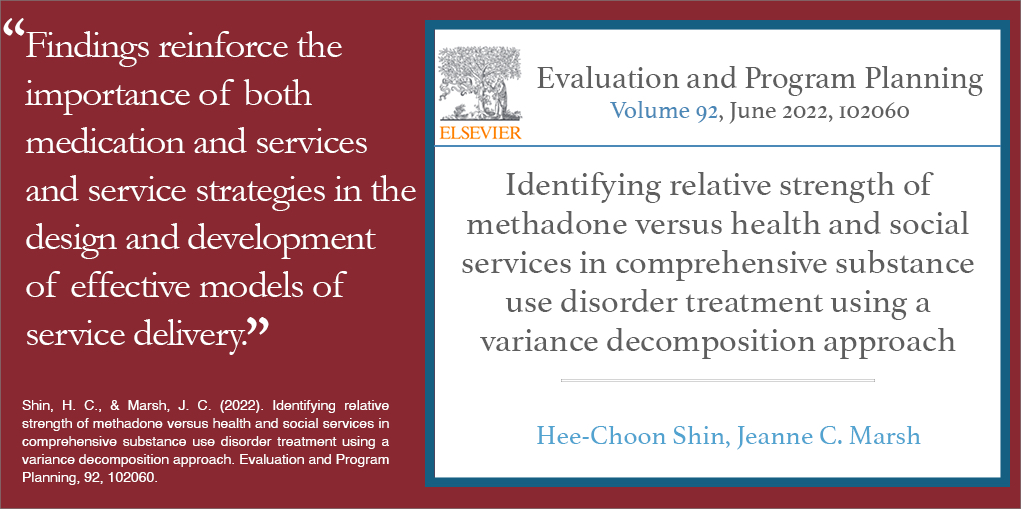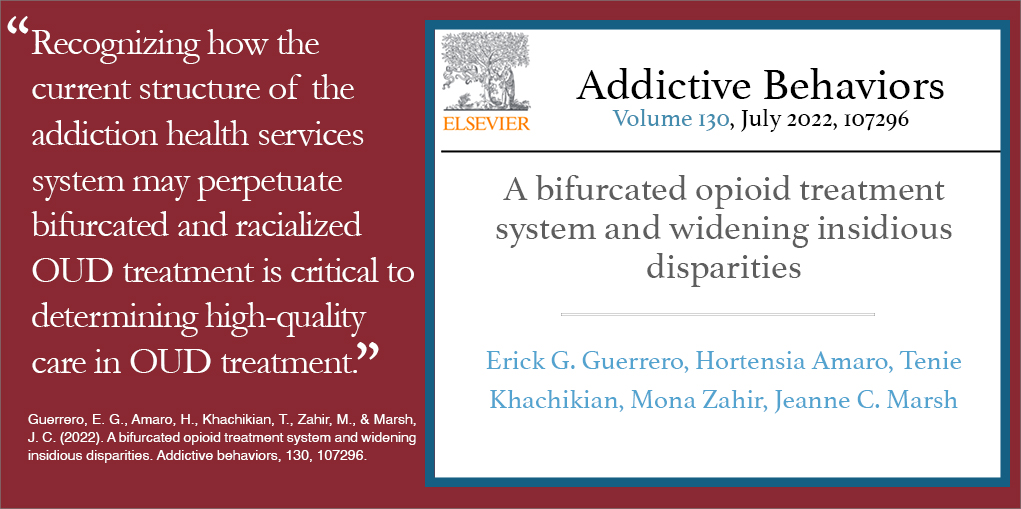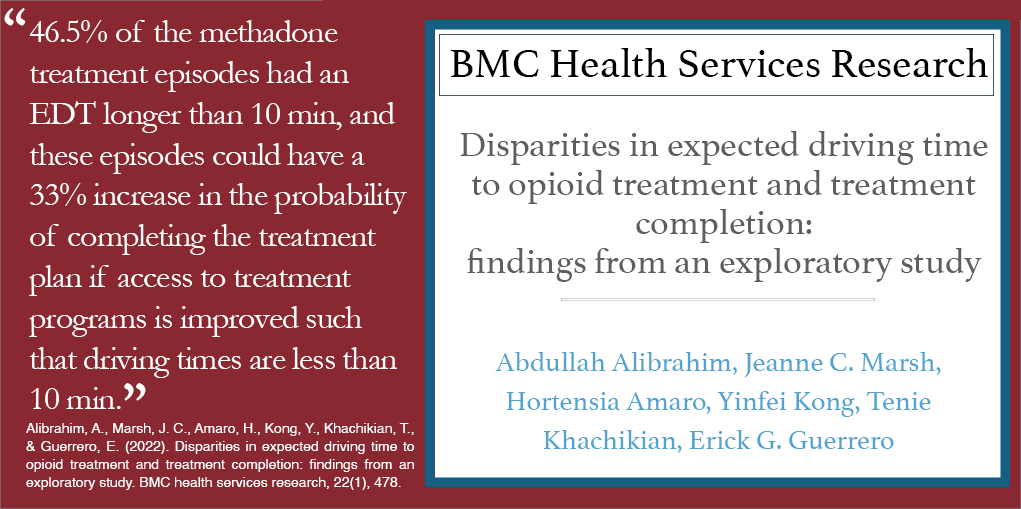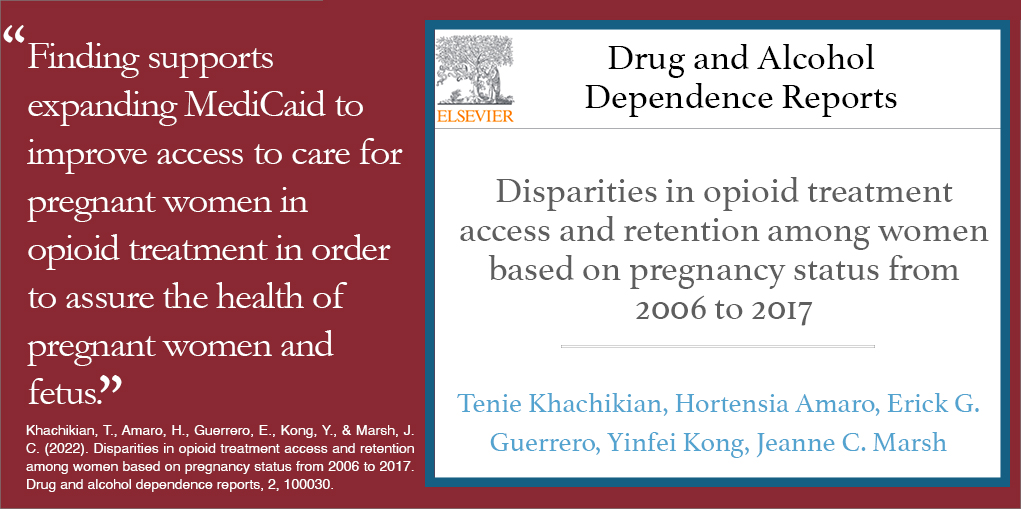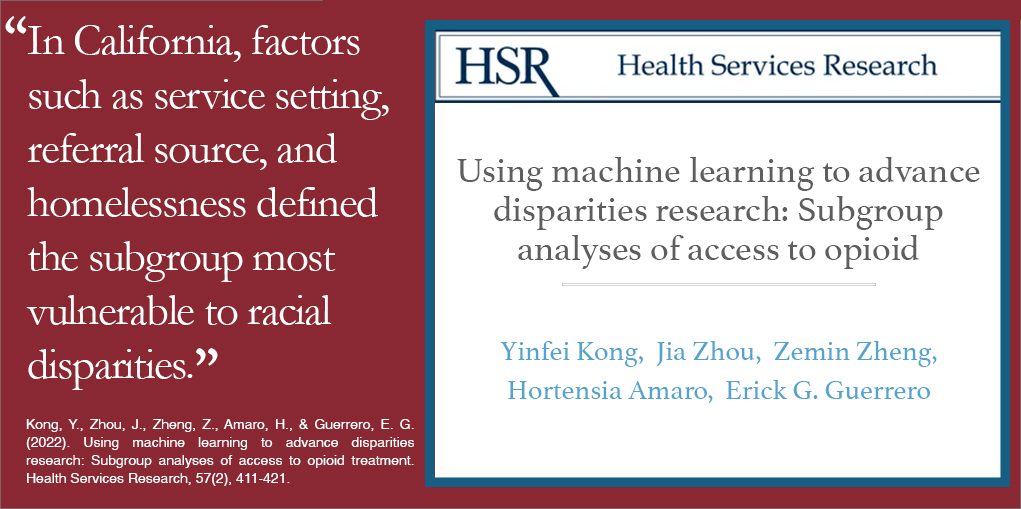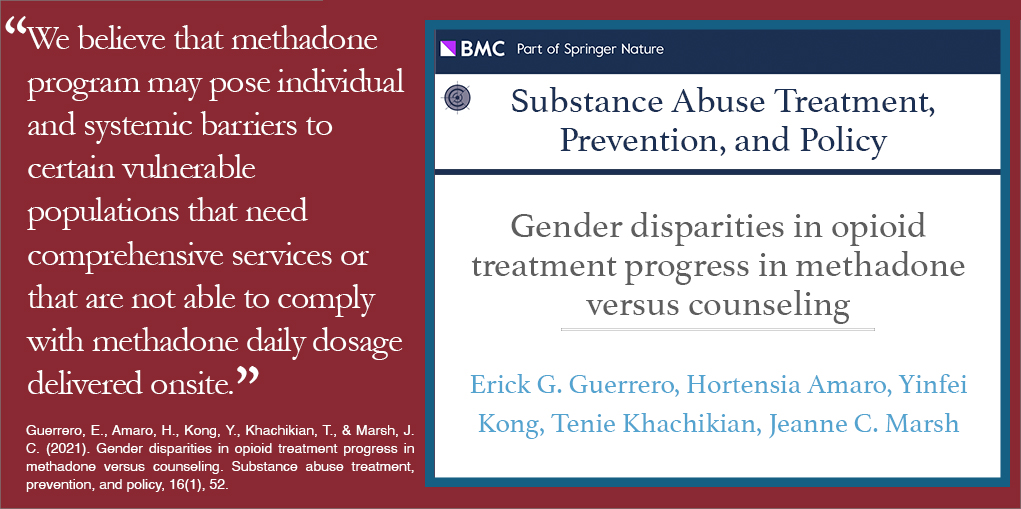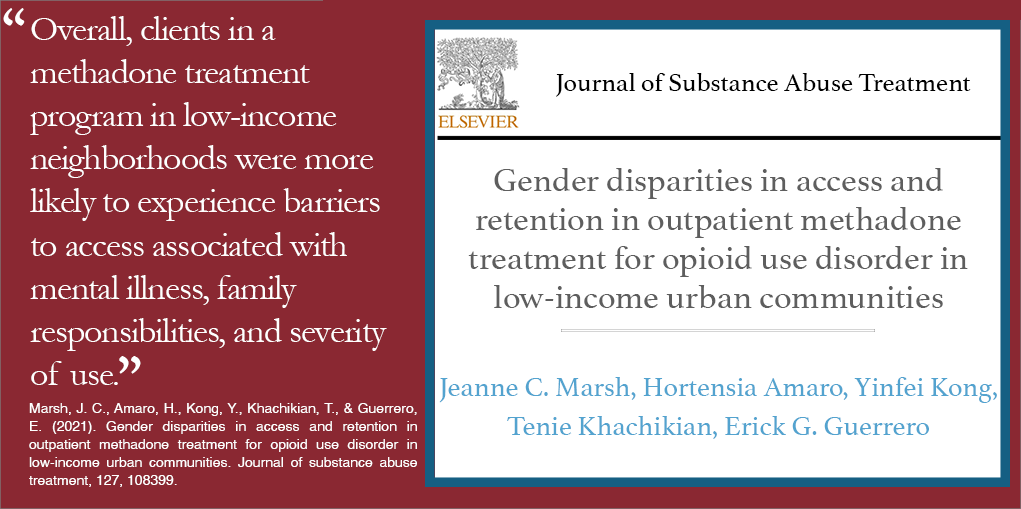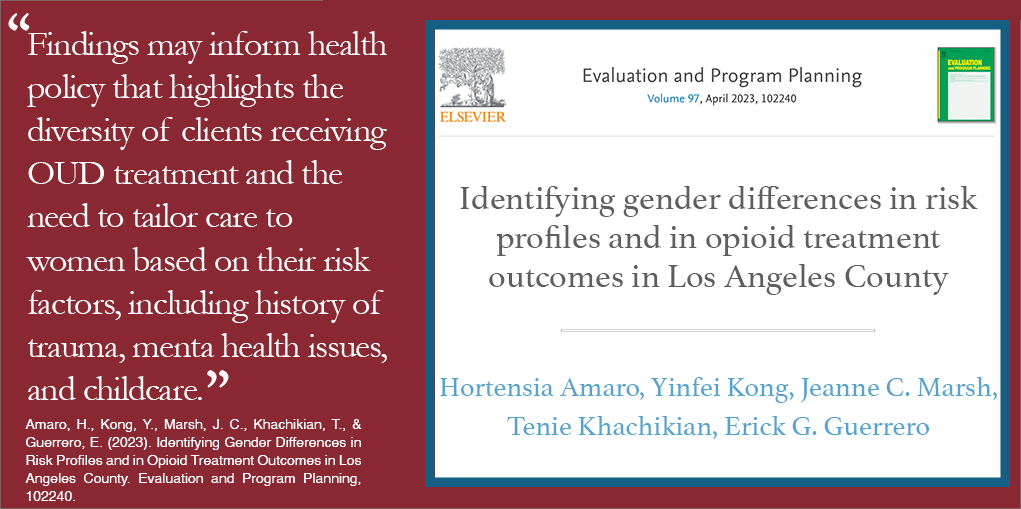Factors Related to Implementing More Culturally Competent Practices in Addiction Services
An important innovation in addiction health programming has been to redesign policies, practices and services to recognize and respond to the service needs of culturally and linguistically diverse populations, termed “culturally competent” practices. These practices involve improving an organization’s knowledge, connections, linkages, and resources in racial and ethnic minority communities, as well as culturally responsive policies, procedures, and staffing practices. Cultural competency can reduce the health disparities among racial and ethnic minorities that are well established in the United States and can also help providers create evidence-based care required by upcoming changes in health care reform.
In a study published in the Evaluation and Program Planning journal, Dr. Erick Guerrero and mentored doctoral student contribute towards the scholarship on improving cultural competent practices. They do so by exploring the relationship between three different sets of characteristics of an organization and the cultural competency of addiction services provided by these organizations:
- Organizational structure: Public funding, regulations, and professional accreditation among organizations.
- Leadership: Transformational leadership among program directors can promote a culture of inclusivity associated with a culturally diverse staff.
- Readiness for change: An organization’s capacity to implement new technologies or innovative practices through program resources and staffs’ motivation for change.
- Organizational structure: Accepting Medi-Cal and receiving more public funding were positively associated with one measure of cultural competency, policies and procedures that better serve minority communities.
- Leadership: Directorial leadership was positively associated with outreach to minority communities and development of diverse staff.
- Readiness for change: One measure of readiness for change, organizational climate (based on survey questions regarding mission, cohesion, autonomy, communication, stress, and change), was associated with policies and procedures that better serve minority communities.




